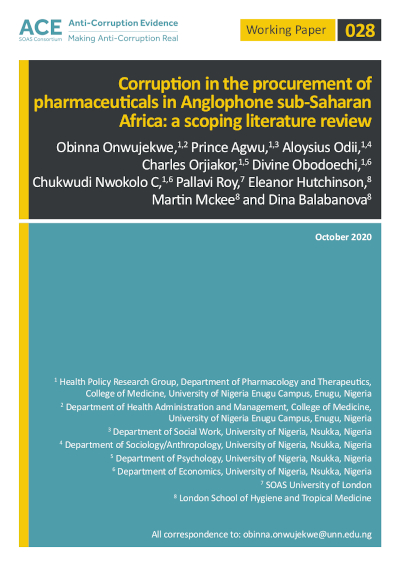
Publication Type: Working Paper
Countries: Nigeria
Authors: Obinna Onwujekwe, Prince Agwu, Aloysius Odii, Charles Orjiakor, Divine Obodoechi, Chukwudi Nwokolo C, Pallavi Roy, Eleanor Hutchinson, Martin McKee, Dina Balabanova
Publication date: October 2020
Keywords: Pharmaceuticals
The cost of procuring pharmaceutical products – especially medicines – represents a major share of public health spending. At the same time, the significant financial resources and the number of players involved in pharmaceutical procurement makes the process susceptible to corrupt practices. Such corruption in the public sector can potentially lead to cost escalations without a commensurate improvement in health outcomes.
There is a particular gap in understanding corrupt practices relevant to the procurement of medicines in Anglophone sub-Saharan Africa. Greater understanding is needed of the different types of corrupt practices that occur in the pharmaceuticals procurement chain, their drivers and effects, and steps that could be taken to reduce corruption and improve accountability and efficiency. This report synthesises the relevant evidence that has been published to date.

